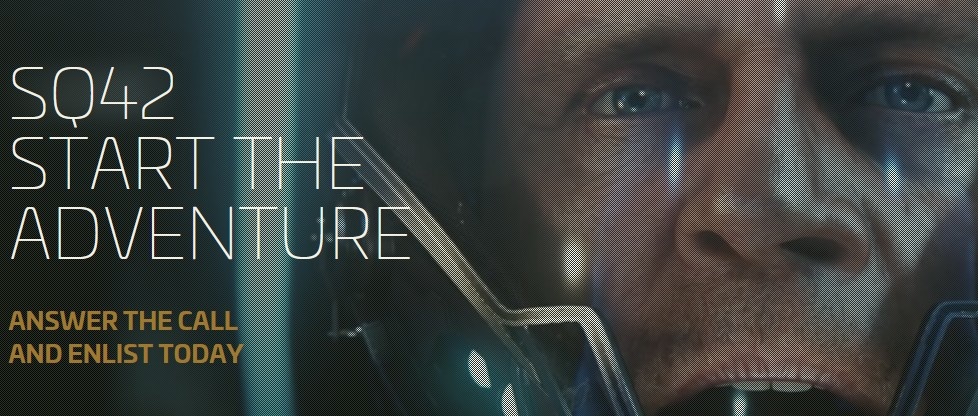All just a scam? Star Citizen players keep having heated discussions with critics of the MMO. The developers bear some of the blame.
“Graphic Blender”. “It”s all a scam”. “Oh, nice, my grandchildren can play that then”. Whenever Star Citizen hits the news, there”s soon snarky comments underneath. Fans of the space MMO are quick to jump to the developers” aid, defending the project sometimes matter-of-factly, sometimes with exuberant passion. Misinformation is spread and fought against, the tone quickly becomes harsher, mutual accusations and insults ensue.
Over dozens of pages and hundreds of posts, real duels are fought between advocates and critics of Star Citizen. Sometimes it”s orderly, as with our community report on the future of the space game.
We wanted to know why Star Citizen is talked about with so much venom – and asked a psychologist for her assessment. She says: Players are more invested in Star Citizen than in almost any other project. And: Chris Roberts, his team at Cloud Imperium Games and the press are partly to blame for the misery.
Table of Contents
How we justify costs to ourselves (and others)
Let”s first look at what the development of Star Citizen and its funding model do to us. “With Star Citizen, several processes intertwine that make it very complex,” says psychologist Bering at the beginning of the interview.
For one, she says, there is the concept of sunk cost fallacy: Investments (such as the “donations” or “pledges” contributing to Star Citizen”s development budget) are thereby defended to others and oneself after the fact, even increased, even when objectively speaking a stop of payments would be appropriate in the face of missing benefits.

“It is a cognitive dissonance,” explains Dani~ Bering. “We as humans are constantly trying to get our system in sync. If we spend money on something, but the product we receive does not meet our expectations, this creates a dissonance, a contradiction. Our body, or rather our system, must now consider how to resolve this contradiction: By adjusting our thoughts so that our behaviour is justified? Or do we change our behaviour?”
Since players in Star Citizen generally don”t just pay once, but may well top up several times over the course of the now ten-year development period because they want to buy new spaceships, for example, this effect can be amplified over time. “If you have invested a lot of money, the dissonance becomes all the greater,” Dani~ Bering points out.
But the relationship is always subjective: if you earn a lot of money, such investments are naturally less important to you. In our experience, many Star Citizen players are at least 18 years old and have a job, so they are more relaxed about spending hundreds or even thousands of euros as part of their hobby.
Which blame the developers
In the psychologist”s eyes, Star Citizen also occupies a special position because of the crowdfunding marketing (now over $500 million in revenue). “Star Citizen is special case that is at the outer end of a certain spectrum. Through crowdfunding there are spending opportunities in four to five figures; someone is always using that. The higher the investment opportunities are, the higher this powder keg you build for yourself [as a developer, editor”s note] with that if you can”t deliver on player expectations.”

The marketing language of Chris Roberts and his company Cloud Imperium Games has a reinforcing effect here, according to Dani~ Bering, because with Star Citizen the people in charge often talk about a vision or a dream that you as a player can participate in. “The marketing process is highly emotional and specifically builds anticipation and expectations that can then be satisfied with the purchase. A feeling is being sold, not a product. That is more appealing to many, but it is also difficult because it is purely subjective. You just can”t objectively check whether you end up with that feeling or not, it”s different for everyone.”
“Some people then feel cheated if they wanted to get that feeling through the purchase and didn”t get it. Then it gets a whole lot more emotional. […] The higher the investment, the more emotional it becomes. It doesn”t have to mean money at all, it can also be time”
The last thought in particular can be found again and again in discussions, forums and comments on Star Citizen: players spend many hours with the game and the reporting around it, ultimately they even accompany it for years. They invest a considerable part of their lives and thus create an emotional connection to the topic in their minds. This is reinforced by the demarcation between backers and the rest of the world, between “us” and “them”, which is promoted by CIG, because such a demarcation creates closeness to like-minded people – and distance from the rest.

This social interaction between Cloud Imperium Games (often in the person of the face of the company, CEO Chris Roberts) and the players is based on the so-called “social exchange theory” exchange theory, according to Dani~ Bering: “Crowdfunding projects in particular are advertised a lot with enticement and marketing statements: developers promise you to become part of the process and even the development. You can buy membership. Of course, that does quite, quite a lot to you, especially over several years.” She elaborates:
“I am part of this journey, this development, and this long-term employment can create a sense of identity, even if you don”t support the project financially yourself. It is then something very different from investing once and never thinking about it afterwards. “
This also explains why former backers of Star Citizen, when they lose confidence in the project at some point, turn all the more vehemently against supporters of the game, for example (in the Reddit forum Star Citizen Refunds). Because they were very much involved in a project that disappointed them. Mantras such as “Become part of the vision” or “Answer the call” support subconscious processes in the brain, according to our conversation partner.
☻
People are always looking for reinforcement: “I want to know how I can profit maximally with minimal input. Profit vs. cost. I went into the interaction with that vision, with that CEO, but realised at some point that cost and profit were out of proportion for me.” Such change doesn”t happen overnight, he says: “In the beginning, the justification measures are very strong. “
How discussions can derail
We now know what emotions, thoughts and subconscious processes Star Citizen”s crowdfunding and marketing triggers in gamers. Next, let”s look at the other side and understand why so many people are quick to lash out in discussions about the MMO. The disappointed ex-backers are certainly part of the equation. But even players who are convinced of the project sometimes lose their patience and react irritably. Dani~ on the reasons for this:
“This has a lot to do with individual factors. How angry are you, how well can you reflect that? Some people react to criticism with: Yes well, I understand you, there are two sides. That”s the healthier way to resolve a dissonance, to say: yes, this part is stupid that the developers keep postponing this feature, but at the same time I”m looking forward to it”
Very important for the psychologist: “It”s not black or white. The more you reflect on your own statements and assumptions, the more likely it is that a factual discussion will emerge. However, thinking in black and white is much easier, so it often becomes abusive. Of course, it also depends on what experiences the individual user has had beforehand. “

What we can all do better
When it comes to cooling down or steering such disputes, which quickly become personal, in a positive direction, Dani~ Bering sees a share of the responsibility in the press and media covering Star Citizen. “You would certainly have fewer discussions if the topic was presented in a differentiated, validating and balancing way.” Perhaps there is a conflict of interest here, since it seems reasonable to assume that more pointed formulations bring more clicks.
The press is “also a source of opinion”, it has “relatively great influence on society and culture, it can tilt the mood in one direction or the other. […] The Star Citizen cosmos is again like its own little society with its own social rules. “
When it comes to moderating chats or forum threads where the topic of Star Citizen is boiling over, Dani~ Bering advises to be appreciative of each other”s position. What you should always keep in mind: “It”s a discussion about a product that is sold as a feeling – and that”s different for everyone, so it”s completely subjective.”
“Boundaries become very blurred in this. For one person it is justified to speak of fraud, for another not, but in the end everything is legitimate, precisely because it is about feelings. Yes, there is a legal definition of a scam, but for our psyche it is not so relevant: If we feel cheated, it doesn”t matter whether a court sees it that way. I feel cheated, I get angry because of it.
This is a primal feeling that has existed since we were living beings. When a line is crossed, we instinctively react with anger. In the past it was about food or our territory, now it”s about our play. […] We all know how fans react when you attack what they love.”
Moderators have to try to steer the discussion as well as possible in an orderly manner. But that only works as long as people really want to have a serious discussion. Dani~ Bering: “If someone just wants to get rid of their frustration, you can”t do anything. Your arguments don”t matter, these people will always see the negative. When people want to troll, they troll”
Other participants can at least be assumed to have some basic interest in the game. “Some of them are waiting for their own position to be confirmed,” the psychologist suspects. “They then say: I like what this toxic guy is writing. But I think there are only a few who watch solely for the sake of arguing. “


